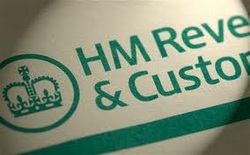 Sole Trader Vs Limited Company Corporation tax is currently 20%, for profits under £300,000 and 24% for profits above £1,500,000. Therefore conversion of your business into a limited company is more beneficial than before. You will enjoy a marginal rate tax saving of 9% from 1 April 2011, compared to 8% previously. This is compared to running your business under self assessment where Income Tax is 20% and Class 4 National Insurance is 9% for profits up to £42,475, profits up to £150,000 will be subject to 40% Income Tax and 2% National Insurance. Profits over £150,000 will be taxed at 50%. There are other factors to consider before incorporation its best to get in touch with us first. Annual Investment Allowance Where a business currently purchases plant and machinery, the first £25,000 of the expenditure qualifies for 100% tax relief in the year of the expenditure. VAT Flat Rate Scheme If you are mainly working for commercial customers it may suit your circumstances to register for VAT under Flat Rate Scheme voluntarily, even if your turnover is below the new VAT turnover threshold of £77,000 per annum. This is on the basis that you do not have much input VAT to reclaim (i.e. service companies). The scheme allows you to charge 20% to your customers, but only pay a smaller percentage of the gross turnover to HMRC. For example a computer consultant with a turnover of £50,000 would charge his customer 20% VAT and therefore receive £60,000, the additional £10,000 would be paid to HMRC, however under the Flat Rate Scheme only 14.5% of the gross turnover needs to be paid i.e. £60,000 x 14.5% = £8,700. Therefore a VAT saving of £1,300, which is taxable. You will also enjoy a 1% discount during the first 12 months from date of VAT registration under the Flat Rate. N.B - each industry has its own specific flat rate percentage.
3 Comments
|
AuthorLicenced Accountant in Brighton Archives
May 2020
Categories
All
|

 RSS Feed
RSS Feed
